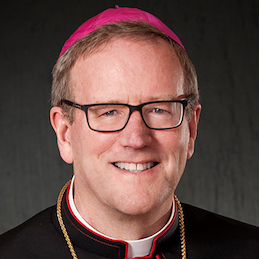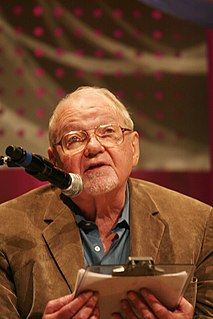A Quote by Robert Barron
The great danger of the new media is that it seems to relish the superficial. There has been an ethos within the Church for many years to pursue an accommodationist strategy in regards to the culture, and this has resulted in a public presentation of the Faith that is often nebulous or "dumbed down."
Related Quotes
We have had people for so many generations dumbed down, literally dumbed down, who are now in positions of awesome and extreme power with influence over others, that we're paralyzed. And, if we're not paralyzed, we are backtracking and moving backwards. We are actually regressing, I should say, from magnificent progress that we as a nation and a culture and society have taken over hundreds of years.
It often seems easier not to move on; even the muck and mire in which we're stuck seems less fearful and less challenging than the unknown path ahead. Some people use faith as a reason to remain stuck. They often say, "I have faith, so I'm waiting." But faith is not complacent; faith is action. You don't have faith and wait. When you have faith, you move. Complacency actually shows lack of faith. When it's time to move in a new direction in order to progress, the right people will come to us.
I was on television a couple of years ago and the reporter asked me, "How does it feel being on mainstream media? It's not often poets get on mainstream media." I said, "Well I think you're the dominant media, the dominant culture, but you're not the mainstream media. The mainstream media is still the high culture of intellectuals: writers, readers, editors, librarians, professors, artists, art critics, poets, novelists, and people who think. They are the mainstream culture, even though you may be the dominant culture."
There's a culture war in this country. Americans in recent years, as you know, have become more secular. They don't go to church as often. Bible reading, prayers in public are now frowned upon. And, of course, in addition to that, a lot of people have become much more supportive of LGBT rights. And in reaction to that, biblically conservative Americans feel that their faith is under assault.
On the whole, the accommodationist position has been dominant in U.S. law and public culture ? ever since George Washington wrote a famous letter to the Quakers explaining that he would not require them to serve in the military because the 'conscientious scruples of all men' deserve the greatest 'delicacy and tenderness.'
Often when you get a really good script, and you receive the new pages, you see that the entire thing has been dumbed down. Films in the '30s and '40s, that were huge blockbusters, were very sophisticated in their language, and the ideas they brought. There were no questions about whether the audience would get it or not.
I don't understand why black people have been so quiescent, so passive over the hundreds of years of American history. Why hasn't there been more violence, more armed struggle? I know answers to some of that, but it seems to me it's an issue of faith, an abiding faith in some sort of great beyond, or great spirit, or even in the American dream.
At this time of crisis we cannot be concerned solely with ourselves, withdrawing into loneliness, discouragement and a sense of powerlessness in the face of problems. Please do not withdraw into yourselves! This is a danger: we shut ourselves up in the parish, with our friends, within the movement, with the like-minded... but do you know what happens? When the Church becomes closed, she becomes an ailing Church, she falls ill! That is a danger. . . .A Church closed in on herself is the same, a sick Church.
We live in a culture that's been hijacked by the management consultant ethos. We want everything boiled down to a Power Point slide. We want metrics and 'show me the numbers.' That runs counter to the immensely complex nature of so many social, economic and political problems. You cannot devise an algorithm to fix them.





































